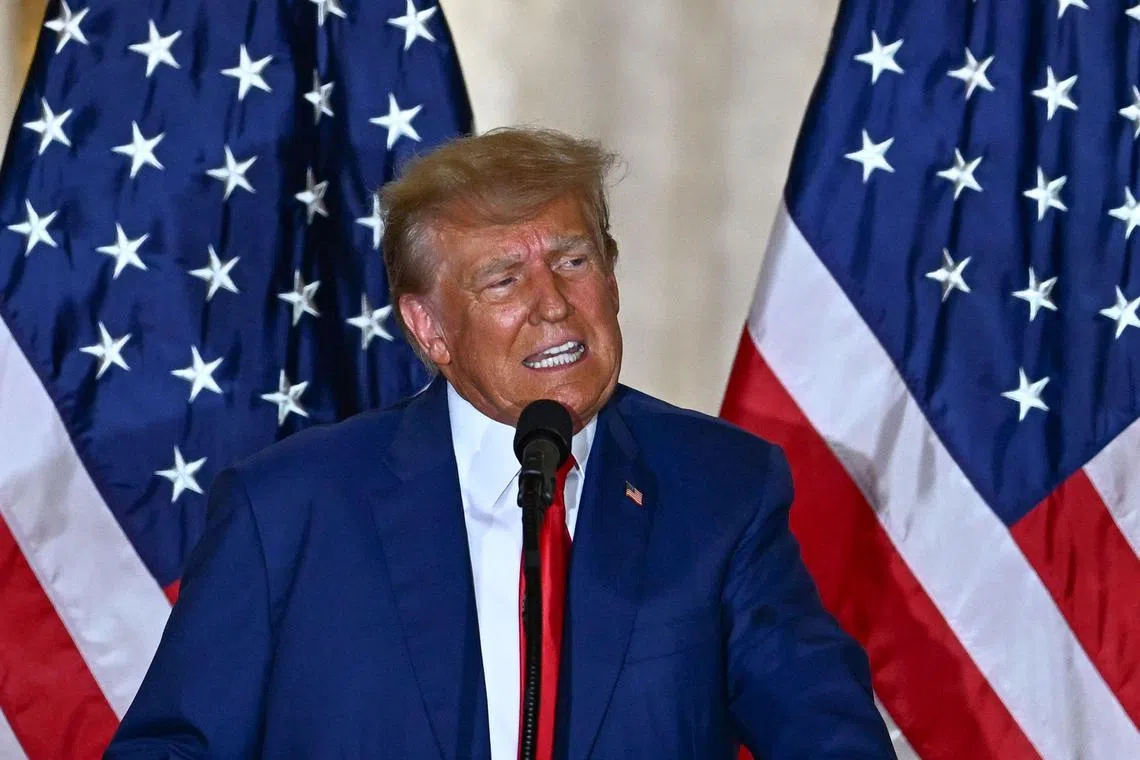What Trump’s 34 felony charges are all about
Sign up now: Get ST's newsletters delivered to your inbox

Donald Trump pleaded not guilty on April 4, the day the indictment was unsealed.
PHOTO: AFP
NEW YORK – Donald Trump is the first former United States president to face criminal prosecution, 34 felony counts of falsifying business records.
Prosecutors say that Trump concealed any connection to payments made on the eve of the 2016 election to porn star Stormy Daniels,
The case asserts that records of the Trump Organisation were falsified as part of a scheme to violate election laws.
Trump denies the affair and pleaded not guilty on April 4, the day the indictment was unsealed. Here is what the charges, brought by Manhattan District Attorney Alvin Bragg, are about:
Payment to Ms Daniels
Ms Daniels, whose real name is Stephanie Clifford, has said that she had a sexual encounter with Trump in 2006 after meeting him at a celebrity golf tournament in Lake Tahoe.
He had married his third and current wife Melania in 2005 and the couple had a new baby.
In early October 2016, The Washington Post published the “Access Hollywood” tape, in which Trump made lewd comments about women.
Trump’s lawyer Michael Cohen, then employed by the Trump Organisation, sent US$130,000 (S$173,000) through a shell entity to a lawyer for Ms Daniels, in return for a pledge that she would not talk about her relationship with Trump.
Mr Cohen later said that he made the payment at the direction of Trump and to influence the 2016 election. He took out a home equity line of credit to make the payment.
‘Falsifying’ business records
Mr Cohen, who was sentenced to three years in prison after pleading guilty to tax evasion and violating campaign finance laws in 2018, has said that Trump reimbursed him for the US$130,000 payment in monthly payments of US$35,000 in 2017, the first year Trump was in the White House.
The 34 counts filed against Trump are related to those payments, which were recorded as legal expenses within the Trump Organisation.
While books and records violations on their own are misdemeanours in New York, they can be charged as felonies when committed in furtherance of another crime, in this case the violation of New York’s election laws.
Violating election laws
In the context of a political campaign, money spent to silence unflattering information can be considered a campaign donation.
Mr Cohen was convicted in federal court of campaign violations in part because his US$130,000 payment to Ms Daniels exceeded what was then the legal limit on an individual’s donation to a political candidate: US$2,700.
Mr Bragg alleges that Trump’s handling of the reimbursements to Mr Cohen violated New York state election law, “which makes it a crime to conspire to promote a candidacy by unlawful means”. BLOOMBERG


